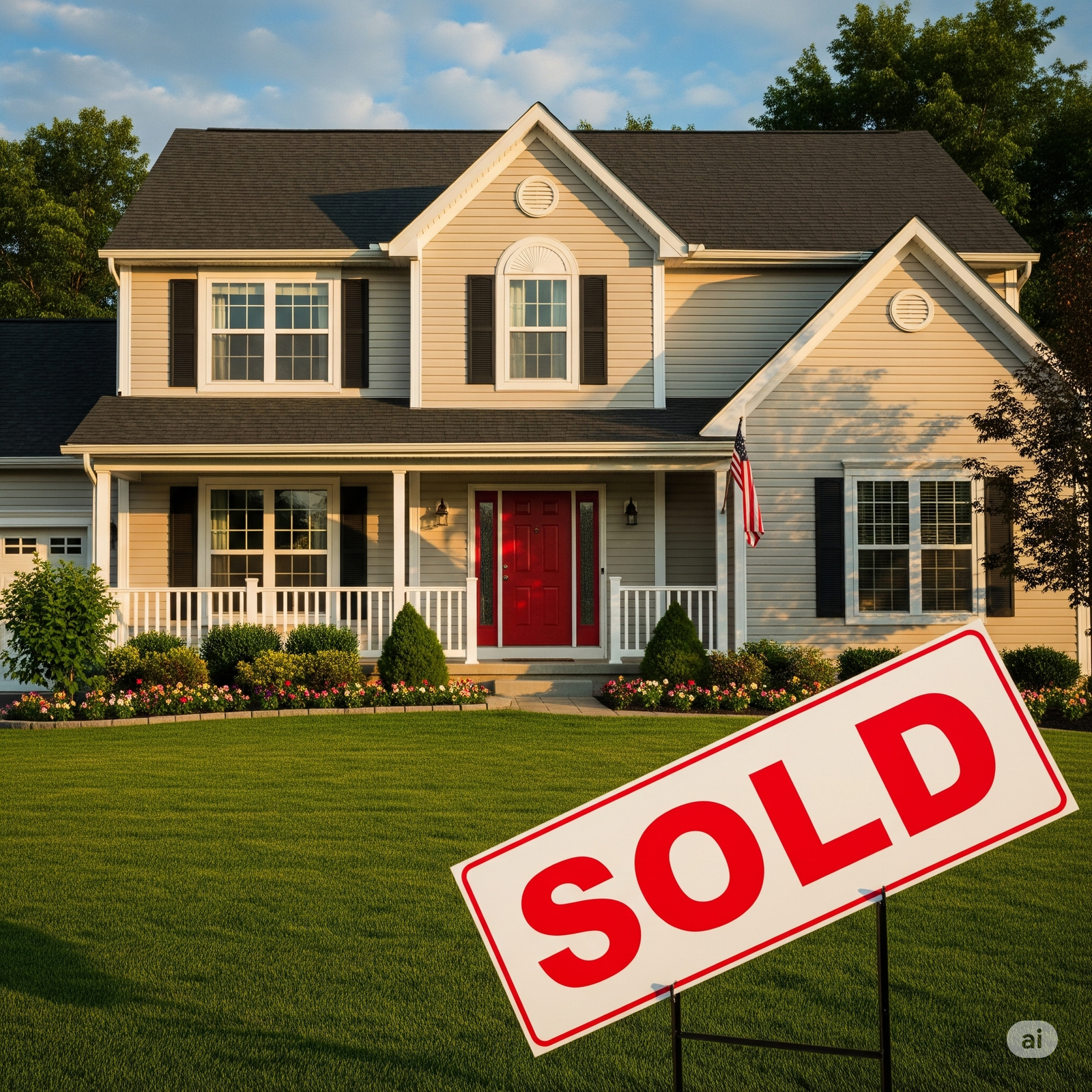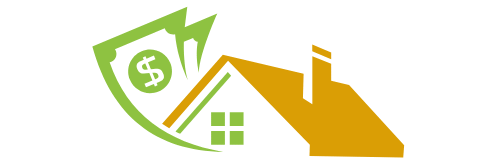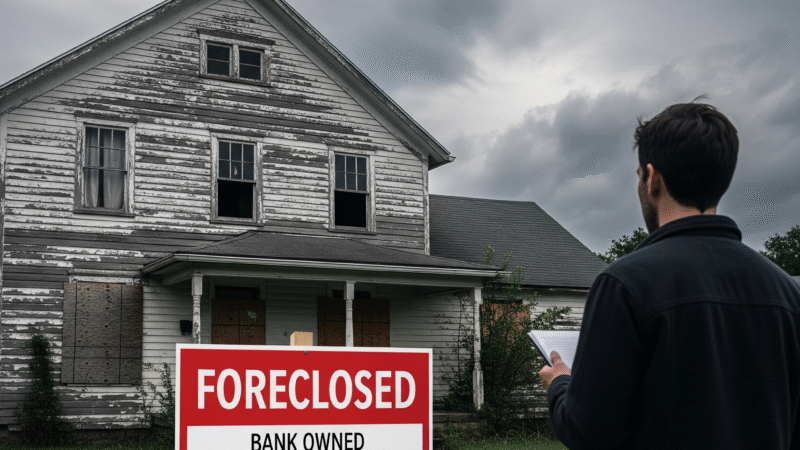Smart Strategies for Purchasing Foreclosed Homes

I remember the quiet conversations my parents used to have at the dinner table. They would whisper about the dream of having a little corner to call their own, a place where their children’s laughter would echo through the halls and where every brick would tell a part of our family’s story. But more often than not, the conversation would end with a sigh, a distant look, and the feeling that this dream was just too big for their budget.
Maybe you’ve felt that way too, looking at house prices and feeling a tightness in your chest when wanting to purchasing foreclosed homes , a mix of desire and frustration. The good news is that there is a path, a door you may not have considered opening yet: the world of purchasing foreclosed homes. And I’m here to hold your hand and show you that, with the right information and a bit of courage, this dream can indeed become your reality.
The journey of purchasing foreclosed homes might seem like a daunting task at first, but I promise we will unravel every detail together, in a simple way that makes sense to you. Imagine yourself a short time from now, with the keys to your own house in your hands, breathing in that scent of achievement. That’s where we’re headed.
Unlocking the World of Foreclosures: What You Really Need to Know
You’ve probably heard terms like “bank-owned properties” or “auction homes,” right? These are just some of the names we give to foreclosed homes. But what does that actually mean?
In simple terms, a foreclosed home is a property that has been taken back by the bank or financial institution because the previous owner couldn’t keep up with the mortgage payments. It’s a sad situation for the person who loses the home, but for someone looking for an opportunity, it can be the chance to buy a property for a price well below its market value.
It’s as if the bank, which has no interest in collecting houses, wants to sell the property as quickly as possible to recover the money it loaned. And that’s where you come in.
The Different Paths to Buy a Foreclosure
There are a few different ways a house becomes “foreclosed” and, consequently, different ways for you to buy it. Let’s understand each one, as if we were looking at a map to choose the best route.
1. Auctions: The Thrill of Bidding for a Great Deal
This is the most well-known way to buy foreclosed homes. Banks, courts, or even government agencies organize auctions to sell these properties. It works much like an art auction, but instead of paintings, the prize is a house.
- How it works: The auction can be in-person or online. An initial value is set, called the “minimum bid,” and interested parties offer higher amounts. Whoever makes the highest bid wins the property.
- The big advantage: This is where you can find the biggest discounts. Often, the minimum bid is significantly below market value, making the opportunity very attractive.
- What you need to know: Auctions can be fast-paced and exciting, but they require preparation. It is crucial to carefully read the auction’s “notice of sale” or “terms and conditions,” which is the document with all the rules and information about the property, such as the existence of liens or if the property is still occupied.
2. Direct Sale from the Bank: A Calmer Conversation
Not all foreclosed homes go to auction. Sometimes, a property doesn’t sell at the auction and goes back to the bank. When this happens, the bank tries to sell the property directly, almost like a real estate agency.
- How it works: The bank lists the house on its own website or on real estate portals. You can often visit the property, make an offer, and negotiate directly with the bank.
- The big advantage: The process is calmer and more similar to buying a “normal” home. You have more time to think, analyze, and even secure financing. Often, the very bank that is selling the property offers special financing conditions.
- What you need to know: Even though it’s a direct sale, it’s important to do your homework. Check the property’s documentation and, if possible, consult with a real estate attorney to ensure everything is in order.
3. REO (Real Estate Owned) Properties: When the Bank is Already the Owner
REO stands for “Real Estate Owned.” In practice, this is the name given to properties that the bank has already repossessed and that were not sold at auction. In other words, the bank is now the official owner of the property.
- How it works: The sale of REO properties is very similar to a direct sale. The bank hires real estate agents to list and sell these properties.
- The big advantage: Since the bank wants to get rid of the property quickly, the prices are usually competitive. Furthermore, because the bank is already the owner, the paperwork tends to be more organized.
- What you need to know: Many of these houses are sold “as is.” This means the bank will not make any repairs before selling. Therefore, a detailed property inspection is essential.
Smart Strategies for Purchasing Foreclosed Homes: Your Action Plan
Now that you know the paths, let’s draw up a plan. Think of this as your recipe for success. Each step is important to ensure you make a good deal and achieve your dream without headaches.
Preparing the ground: what to do before you start searching
Before you go out looking for your house, you need to get “your” house in order first. And by that, I mean your financial life.
- Organize your finances: Make an honest assessment of how much you earn, how much you spend, and how much you can save each month. This will give you a clear idea of the value of the house you can afford.
- Think about financing: Most people need a mortgage to buy a house. Talk to your bank manager or a mortgage specialist to find out how much you can get pre-approved for. This is called a “mortgage pre-approval,” and it puts you in a much stronger position when it’s time to negotiate.
- Save for a down payment and extra costs: Even with financing, you’ll need money for a down payment. Additionally, buying a property involves other costs, such as closing costs, taxes, and title fees. It’s wise to have a reserve for this.
The Treasure Hunt: Where to Find the Best Opportunities
With your finances in order, it’s time to start the search. But where should you look?
- Bank websites: Large banks like Bank of America, Wells Fargo, and others have sections on their websites dedicated to selling foreclosed properties.
- Official auctioneers: There are companies that specialize in real estate auctions. Do an online search for “real estate auctions” in your city.
- Real estate portals: Many property listing websites like Zillow, Realtor.com, and others also list foreclosed homes. Keep an eye out for terms like “foreclosure,” “auction,” or “bank-owned.”
The Detective’s Eye: The Importance of Inspection and Document Review
You’ve found a house that seems perfect, and the price is incredible. Hold on! Now is the time to act like a detective and investigate everything.
- Visit the property whenever possible: If the property is vacant, schedule a visit. Bring a checklist of what to look for: the condition of the walls, floors, ceiling, windows, doors, electrical wiring, and plumbing. If you don’t know much about this, consider bringing an engineer or a trusted contractor.
- Pay attention to occupied properties: Many auction homes are still occupied by the former resident. The auction notice should state this. Buying an occupied property might be cheaper, but you will have the responsibility (and the costs) of the eviction process, which can involve legal action. Weigh this decision carefully.
- Analyze the property title: The “title” is like the property’s birth certificate. In it, you’ll find the entire history of the property, including whether there are other debts, such as unpaid property taxes or liens. You can request a title report from a title company.
The Art of Negotiation: How to Get the Best Price
Whether at an auction or in a direct sale, knowing how to negotiate is crucial.
- At auctions: Set a maximum price you are willing to pay and do not exceed that limit, no matter how exciting the auction gets. Remember that in addition to the bid amount, you will have other costs.
- In a direct sale: Don’t be afraid to make an offer below the asking price. Banks are often open to negotiation because they are motivated to sell the property quickly.
Financing Your Dream: Is It Possible to Finance a Foreclosed Home?
The answer is: yes, in most cases!
- Direct sales and REO properties: For these types of sales, getting financing is quite common. Often, the bank selling the property will offer its own mortgage products with attractive terms, such as lower interest rates.
- Auctions: Financing for auctions can be a bit more complicated, mainly because of the tight deadlines. You usually need to pay the bid amount in a short period, which may not be enough time to get a traditional mortgage approved. However, some banks and auction houses now offer financing options. Always check the auction terms.
An alternative for those who need cash quickly for an auction is a “bridge loan,” which is a short-term loan with higher interest rates, designed to cover the cost until you can secure long-term financing.
The Risks Exist, But They Can Be Managed
It would be dishonest of me to say that purchasing foreclosed homes comes with no risks. But with information and care, you can protect yourself.
- The condition of the property: As we’ve discussed, many of these homes are sold “as is” and may need repairs. That’s why the inspection is so important. Factor the potential costs of renovations into your budget.
- Hidden debts: A careful review of the property title is your best defense against unpleasant surprises, such as liens for unpaid taxes or HOA fees that could become your responsibility.
- The issue of eviction: If the property is occupied, the responsibility of removing the resident will be yours. Be prepared for the costs and the time that an eviction process can take.
Conclusion: The Key to a Good Deal is in Your Hands
The journey to purchase foreclosures can be incredibly rewarding. It opens a door to achieving the dream of homeownership for many people who, like my parents, once thought that dream was out of reach.
It is not a path without challenges, but with research, planning, and a healthy dose of caution, the risks diminish, and the chances of making an excellent deal increase significantly.
Keep in mind every step we’ve discussed here. Organize your finances, research opportunities, investigate the property like a detective, and don’t be afraid to negotiate. Information is your most powerful tool.
The feeling of walking into a place and knowing that it’s yours, that every corner will hold your memories and your dreams, is priceless. And knowing that you achieved it intelligently, by making a smart deal, makes the victory even sweeter. The door is open. Now, it’s your turn to take the next step.
Key Points to Remember:
- What it is: Foreclosed homes are properties that banks have repossessed for non-payment and sell at lower prices.
- How to buy: You can buy a foreclosed home through auctions, direct sales from banks, or by purchasing REO (Real Estate Owned) properties.
- Get prepared: Before you start, organize your finances and get a mortgage pre-approval.
- Investigate: Whenever possible, visit the property and analyze the title report to check for liens and legal issues.
- Beware of occupied properties: Buying a home with residents might be cheaper, but the eviction process will be your responsibility.
- Renovations: Be prepared for potential renovation costs, as many properties are sold “as is.”
- Financing is possible: Most direct sales and REO properties are eligible for financing, often with special terms from the selling bank.


